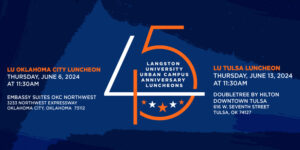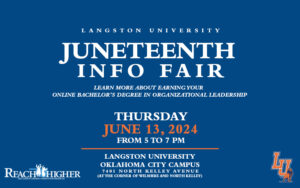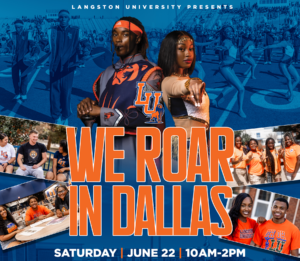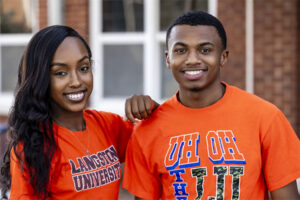
School of Education and Behavioral Sciences
REHABILITATION AND DISABILITY STUDIES
Mission
The mission of Rehabilitation Counseling Program (RCP) is to train qualified personnel to provide quality rehabilitation and mental health professionals to meet the state and national human resources demands as well as conducting a programmatic research agenda and service aimed at improving vocational rehabilitational services for persons with disabilities.
Goals & Objectives
- To increase the number of qualified rehabilitation counselors and mental health professionals from traditionally underrepresented populations to work in the state and federal rehabilitation program or counseling-related agencies.
- To provide high-quality academic training which is responsive to the needs of practicing Vocational Rehabilitation (VR) counselors from the Oklahoma Combined Rehabilitation Agency, the eight American Indian VR Programs, and community rehabilitation programs.
- To present an academic curriculum that provides program participants with the knowledge, skills, and competencies that emphasize independent living and that meet or exceed CACREP standards.
- To prepare graduates for the Certified Rehabilitation Counselor (CRC) designation, and the Oklahoma Licensed Professional Counselor (LPC) credential.
- To place graduates in vocational rehabilitation and counseling positions in state-federal rehabilitation agencies, as well as in profit and non-profit entities.
CONTACTS

Special Project
The Advanced Rehabilitation Research Training (ARRT) Program at the Langston University (historically Black college/university [HBCU]) Rehabilitation Research and Training Center (LU-RRTC) on Research and Capacity Building represents a collaborative effort between the Institute for Community Inclusion at the University of Massachusetts Boston ([ICI] Asian American and Native American Pacific Islander-serving Institution [AANAPISI]), North Carolina Agricultural and Technical State University ([NCA&T] HBCU), South Carolina State University ([SCSU] HBCU), Jackson State University ([JSU] HBCU), and the Kessler Foundation. The Project implements a Peer-to-Peer Multiple Mentor Model to help post-doctoral Fellows navigate institutional context and cross-fertilize their independent research project and research grant proposal through exchanges with a primary mentor and a scientific panel of mentors comprised of content experts, multicultural specialists, methodologists, and statisticians.
The ARRT Program works in concert with the LU-RRTC drawing upon the center’s extensive minority-serving institution research capacity building expertise, collaborative networks, resources, and interventions (e.g., methodology and grant writing web-based trainings, communities of practice, strategic planning, sponsored programs office and institutional review board technical assistance and consultation), offers courses, webinars, and implements peer mentoring as an innovative strategy to holistically address the Fellows’ research skill building needs. The ARRT Program works in concert with the LU-RRTC drawing upon the center’s extensive minority-serving institution research capacity building expertise, collaborative networks, resources, and interventions (e.g., methodology and grant writing web-based trainings, communities of practice, strategic planning, sponsored programs office and institutional review board technical assistance and consultation), offer courses, webinars, and implement peer mentoring as an innovative strategy to holistically address the fellows’ research skill building needs.
The ARRT objectives are to:
Implement a recruitment strategy that will attract 4 to 6 well-qualified MSI-based fellows, including individuals with disabilities, interested in pursuing research or academic careers in the rehabilitation of individuals with disabilities for advanced research training.
Provide fellows with a multidisciplinary training program that includes didactic research coursework and classroom instruction offered through alternative technological platforms (skype or on-line) that will increase their knowledge of scientific research methodologies, multicultural research best-practices, and solutions-focused translational approaches suitable to the field of rehabilitation.
Implement mentoring through an interface between fellows and a Peer-to-Peer Multiple Mentor approach that consist of a primary mentor and a scientific mentorship panel comprised of context experts, multicultural specialists, methodologists, and a statistician from the LU-RRTC, ICI, NCA&T, SCSU, JSU, and Kessler Foundation.
Increase fellows’ scientific writing abilities by having them collaborate with researchers on grant writing and preparation of independent research findings for submission to peer-reviewed journals.
Improve fellows’ presentation abilities to both professionals and consumers.
Provide fellows with interdisciplinary research experiences.
Involve fellows in consumer-related experiences by providing opportunities to deliver clinical employment support interventions and/or participate in structured community-based settings with organizations representing individuals with disabilities such as Oklahoma Department of Rehabilitation Services, Goodwill Industries of Central Oklahoma, and Oklahoma City Public School District-Department of Special Education





